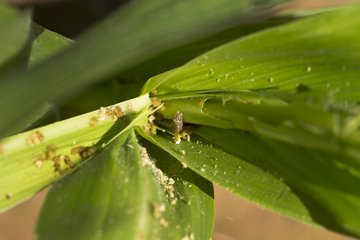- Share this article
- Subscribe to our newsletter
2020 is the International Year of Plant Health
The United Nations’ International Year of Plant Health (IYPH) for 2020 was launched by the Food and Agriculture Organization (FAO) in December 2019. It aims to raise global awareness on how protecting plant health can help end hunger, reduce poverty, protect the environment and boost economic development.
Every year, up to 40 per cent of global food crops are lost to plant pests and diseases. This leads to annual agricultural trade losses of over USD 220 billion, leaves millions of people facing hunger, and severely damages agriculture – the primary income source for poor rural communities.
This is why policies and actions to promote plant health are fundamental for reaching the Sustainable Development Goals, FAO says.
Climate change and human activities are altering ecosystems, reducing biodiversity and creating conditions where pests can thrive. At the same time, international travel and trade has tripled in volume in the last decade and can quickly spread pests and diseases around the world causing great damage to native plants and the environment.
Protecting plants from pests and diseases is far more cost effective than dealing with full-blown plant health emergencies. Plant pests and diseases are often impossible to eradicate once they have established themselves and managing them is time consuming and expensive.
What will the International Year of Plant Health do?
The Year will emphasise prevention and protection, and the role everyone can play to ensure and promote plant health.
The key objectives of the Year are: raising awareness of the importance of healthy plants for achieving the 2030 Agenda for Sustainable Development; highlighting the impact of plant health on food security and ecosystem functions; and sharing best practices on how to keep plants healthy while protecting the environment.
By preventing the spread and introduction of pests into new areas, governments, farmers and other actors of the food chain, such as the private sector, can save billions of dollars and ensure access to quality food.
Keeping plants or plant products free from pests and diseases also helps facilitate trade and ensures market access especially for developing countries. For this, it is important to strengthen adherence to harmonised international phytosanitary regulations and standards.
When combatting pests and diseases, farmers should adopt, and policymakers should encourage the use of environmentally friendly methods such as integrated pest management to help keep plants healthy whilst protecting the environment, FAO stresses.
Governments, legislators and policymakers should empower plant protection organisations and other relevant institutions, and provide them with adequate human and financial resources. They should also invest more in plant-health related research and outreach, as well as innovative practices and technologies.
(FAO/ile)
Read more at FAO Website: http://www.fao.org/news/story/en/item/1253551/icode/





Add a comment
Be the First to Comment